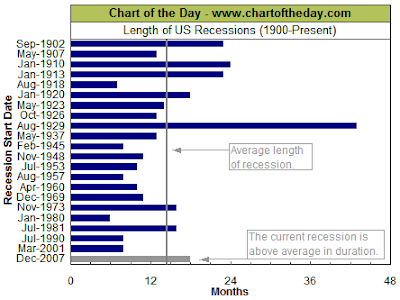In order to lessen the depth of this recession and to get the economy back on a growth track, effective policies out of Washington are critical. One time stimulus checks to individuals historically do not have a longer term positive economic impact. The reason being consumer behavior remains unchanged since they understand this type of stimulus is a one time payment and not an ongoing benefit to their cash flow.
In January of this year, The Heritage Foundation noted in a report, Economic Recovery: How Best to End the Recession:
Much of official Washington is focused on a big stimulus plan based predominantly on increased spending, possibly including an expanded infrastructure program plus aid to the states and to low-income families. Whatever the merits of these programs on other policy grounds might be, they would not stimulate--and indeed are likely to weaken--the economy in the near term.
The American economy does not rise and fall with the level of aggregate demand or deficit spending. Further, government cannot simply pump up total demand through deficit spending. The deficit for 2009 is already projected to exceed $1 trillion, so if deficit spending were effective, the economy should already be poised to take off.
Yet the economy is contracting despite these unprecedented deficits because government spending in excess of tax revenues will be financed by borrowing from the private sector, which deprives the private sector of a like amount of purchasing power. In short, deficit-financed government spending goes up and private spending goes down, changing the composition of demand but not the total (emphasis added).
Focusing on demand in this way is like focusing on the sound of one hand clapping. The other hand is supply, and that is where the economic action really is. There are normal processes that launch a recovery and drive an economy. These processes involve individuals and businesses responding to opportunities and incentives. When they respond, these individuals and businesses produce more goods and services valued in the marketplace, simultaneously increasing production, demand, and income. An effective stimulus policy recognizes these economic processes and seeks to accelerate them. Lower marginal tax rates stimulate the economy because they improve the incentives facing individuals and businesses to work, invest, take risks, and seize opportunities.
Alex Tabarrok at Marginal Revolution notes:
During the Great Depression federal expenditures increased tremendously but so did taxes. Thus, the reason spending was not stimulative was not that spending wasn't tried it's that taxes were also raised to prohibitive levels. But don't take my word for it. Read Cary Brown (JSTOR).



1 comment :
The Heritage Foundation only has one answer to all problems; Cut tax rates, especially to the rich. Suggesting this method is as irresponsible as increasing spending. We are running in debt, decreasing tax revenues will only add to this debt. Don't give me another study from the heritage foundation suggesting that it will increase tax revenue by cutting taxes, I have seen that bologna before.
Post a Comment